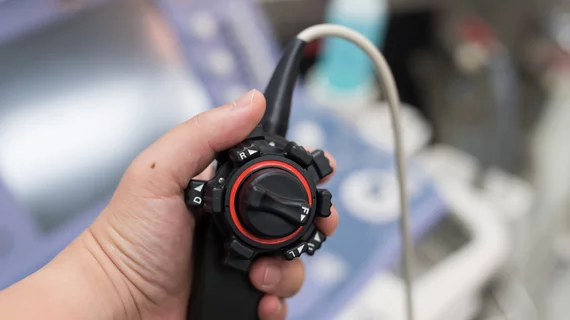Simulations help 'accelerate the TEE learning curve' for cardiology trainees
Simulation-based training can help cardiology fellows improve their transesophageal echocardiography (TEE) knowledge and skills, according to a new analysis published in JAMA Network Open.[1]
“Although the practice of transthoracic echocardiography (TTE) is taught from the beginning of the cardiology fellowship, TEE learning may be hampered by the lack of availability of teachers and equipment,” wrote first author Théo Pezel, MD, a cardiologist with the University of Paris, and colleagues. “Furthermore, TEE is semi-invasive with a need for esophageal intubation. In this setting, simulation emerges as a key educational tool to improve accessibility of TEE training and accelerate the TEE learning curve.”
Pezel et al. explored the effectiveness of this training method with the SIMULATOR study. The group focused on data from more than 300 cardiology fellows in France with little TEE experience. Nearly 63% of the participants were male, and the mean age was 26.4 years old. The fellows were randomly selected to either take part in two, two-hour sessions of TEE simulations, or undergo traditional training.
Each fellow was tested before the study began and again three months after the training program had ended. Test results were reviewed by a team of certified echocardiography instructors.
Overall, the authors found that the simulation-based training group displayed higher theoretical test scores (47.2% vs. 38.3%) and practical test scores (74.5% vs. 59%) than the traditional training group. Also, the simulation training appeared to be more effective when the trainee was closer to the beginning of their fellowship.
The simulation group was also associated with faster TEE performance times (8.3 minutes vs. 9.4 minutes) and more confidence.
“The simulation-based training program in this study, with only two, two-hour sessions, is not sufficient to achieve an expert level in TEE, but even with such a limited simulation-based program in our study, the benefits of improved knowledge and skills were statistically significant,” the authors wrote. “Therefore, this study provides evidence in favor of simulation-based training in TEE.”

